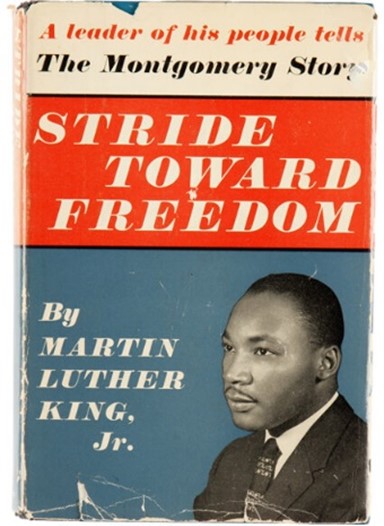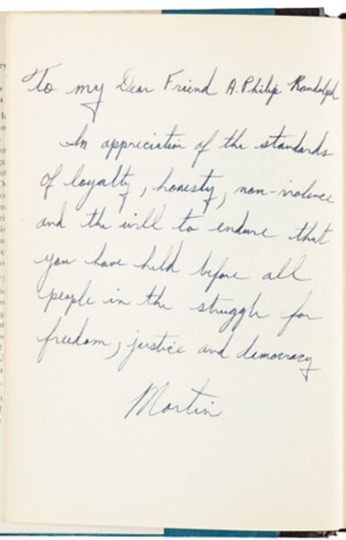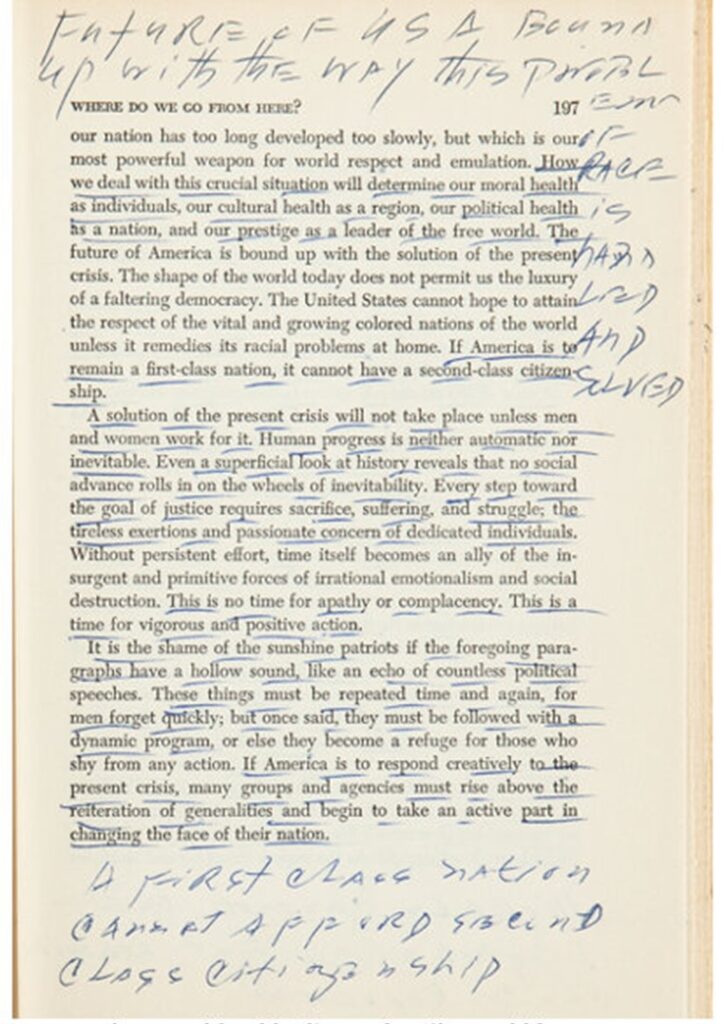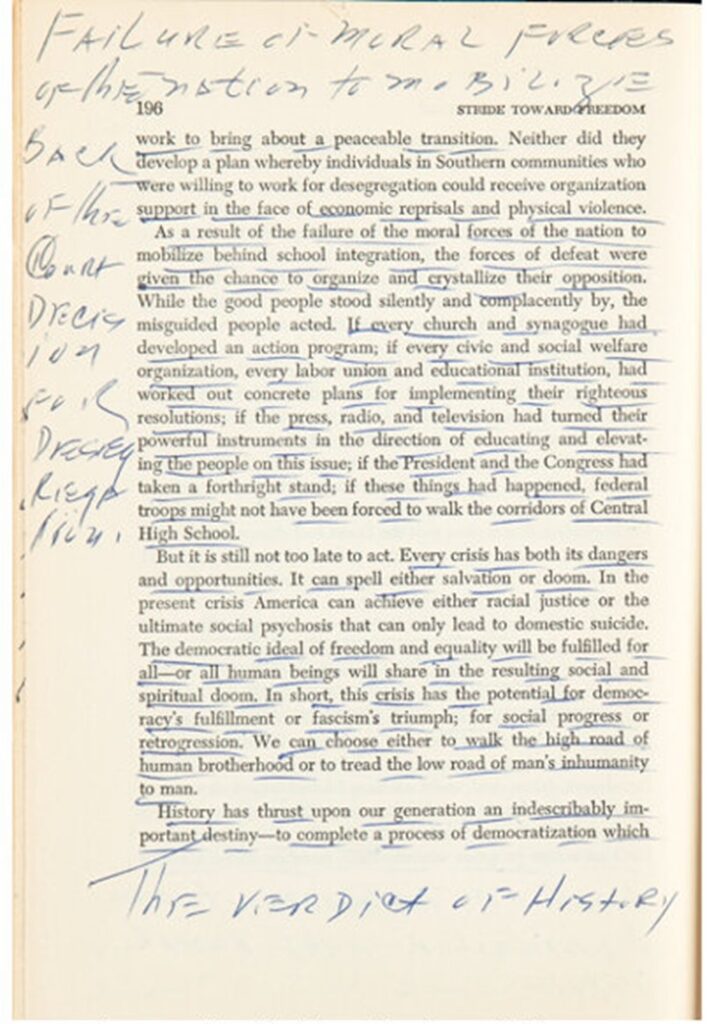Martin Luther King, Jr., Incredible Signed Copy of Stride Toward Freedom, Inscribed to A. Philip Randolph—with Randolph’s Extensive Notes
Full-page inscription by King: “To my dear friend A. Phillip Randolph. In appreciation of the standards of loyalty, honesty, non-violence, and the will to endure that you have held before all people in the struggle for freedom, justice, and democracy, Martin”.
MARTIN LUTHER KING, JR. Signed book, inscribed to A. Phillip Randolph. Stride Toward Freedom, New York: Harper and Row, 1958. First edition. 224 pages.
Asa Phillip Randolph was a pioneer crusader for African American rights. In 1925 he founded the Brotherhood of Sleeping Car Porters (the Pullman Porters). In 1941, he and other leaders proposed a march on the capitol to protest discrimination, but cancelled it when President Roosevelt issued an executive order forbidding discrimination in war industries. In 1963, he was one of the Big Six organizers of the March on Washington for Jobs and Freedom.
Randolph has marked or annotated 69 of the book’s 224 pages. On some he simply underlined passages that struck him as particularly relevant or powerful. Dozens of other pages are filled with his extensive notes, often copying, echoing or amplifying King’s sentiments, such as:
- “Negro worker has a right to expect the trade unions to help him secure economic and political rights”
- “Prediction of violence is an invitation to action,” penned to the side of King discussing the effects that leaders’ statements have had on unfolding events. (p137)
- “Non-violence is a way of humility and self-restraint”
- “Inflammatory statements of white Southern leaders make for violence” (p192)
- “Future of USA bound up with how this problem of race is handled and solved” (p197)
- “A first class nation cannot afford second class citizenship” (p197)
- “Morals cannot be legislated but behavior can be regulated” (p198)
- “Poor whites suffer poverty while clinging to the myth of racial superiority” (p204)
- While MLK believed that the end goal must be “redemption and reconciliation,” Randolph declared that that ultimately, the “Negro must fight and suffer for his rights.”
Examples of passages underlined by Randolph:
- Rosa Parks “was not ‘planted’ there by the NAACP, or any other organization; she was planted there by her personal sense of dignity and self-respect. She was anchored to that seat by the accumulated indignities of days gone by and the boundless aspirations of generations yet unborn…” (p44)
- “But the forces of good will failed to come through. The Office of the President was appallingly silent, though just an occasional word from this powerful source, counseling the nation on the moral aspects of integration and the need for complying with the law, might have saved the South from much of its present confusion and terror.” Randolph adds annotation, “lack of Presidential leadership in the racial crisis.” (p195)
- “As a result of the failure of the moral forces of the nation to mobilize behind school integration, the forces of defeat were given the chance to organize and crystallize their opposition. While the good people stood silently and complacently by, the misguided people acted.” Randolph adds annotation, “Failure of moral forces of the nation to mobilize back of the court decision for desegregation.” (p196)
- “Government action is not the whole answer to the present crisis, but it is an important partial answer. Morals cannot be legislated, but behavior can be regulated.” Randolph repeats the second sentence in the margin. (p198)
While signing copies of this book in Harlem on September 20, 1958, King was attacked by a mentally ill woman who stabbed him with a 7” steel letter opener. According to doctors who operated on the 29-year-old civil rights leader, “Had Dr. King sneezed or coughed, the weapon would have penetrated the aorta.… He was just a sneeze away from death.” Randolph chaired a fundraising drive to cover expenses relating to the attack and King’s recovery.





